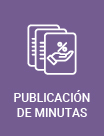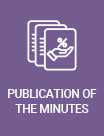Seminario en economía aplicada Núm. 25: Migration, Specialization, and Trade: Evidence from the Brazilian March to the West
- NYU Abu Dhabi
- University of Michigan.
La presentación del seminario será en inglés, no habrá traducción simultánea.
Lugar: UNAB, Edificio de Posgrados, Salón D25, Bucaramanga.
Entrada libre. Indispensable inscribirse en el siguiente vínculo: Inscripciones














.png)




































